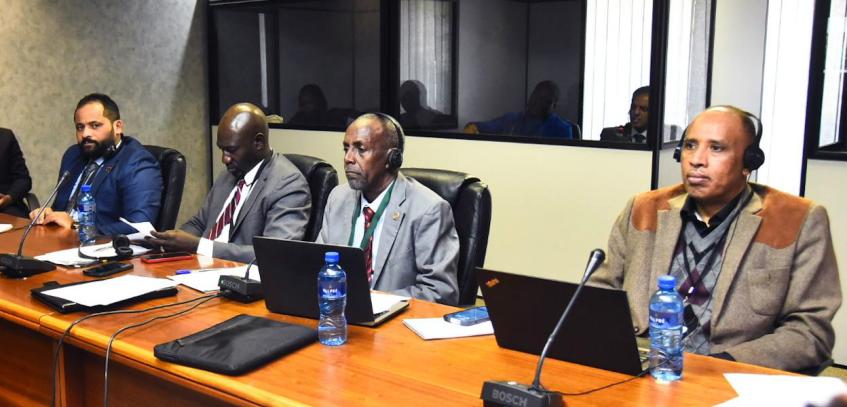The Pan-African Parliament Permanent Committee on Rural Economy, Agriculture, Environment, and Natural Resources, along with the Pan African Climate Justice Alliance (PACJA), held a joint meeting to discuss the outcomes of COP28 and prepare for COP29, scheduled to take place in Azerbaijan later this year.
This meeting was held during the ongoing 3rd Session of the Sixth Parliament of the Pan-African Parliament in Midrand, South Africa, under the African Union’s (AU) Theme of the Year, which focuses on education.
Delivering a compelling presentation, PACJA Director Dr. Mithika Mwenda painted a disappointing picture of the progress made by the African continent with the assistance of Western countries since COP28. The committee heard that COP28 did not result in significant action from developed countries in fulfilling their climate finance commitments.
While there were some wins for the continent, a major disappointment and setback for climate justice was the failure of COP28 to secure new financial commitments for transitioning away from fossil fuels. During the two-week-long conference in Dubai last December, an agreement on the operationalization of funding arrangements for addressing loss and damage was made, including a new dedicated fund under the United Nations Framework Convention on Climate Change (UNFCCC) to address loss and damage from climate change. The UNFCCC is the United Nations (UN) process for negotiating agreements to limit dangerous climate change.
Developed countries had promised USD 100 billion in annual climate financing for developing nations back in 2009 and renewed that pledge at COP26 in Glasgow. Mwenda revealed that the money has been available through loans, which has plunged African countries into more debt than they can afford.
“Developed countries must fulfill their climate finance commitments. Unfortunately, COP28 has not yet taken significant action towards this finance goal. The current demand for climate finance is in the trillions of dollars, and the previous projection of USD 100 billion annually should be recalibrated upwards,” he said.
He added that while significant mobilization of public and private finance is crucial, addressing the indebtedness of African developing countries and reforming the international financial architecture must be accorded pragmatic steps beyond rhetoric.
Parliamentarians raised concerns that the debts the continent faces are causing serious problems such as wars, high unemployment among young people, and some countries experiencing barren states due to drought. The committee further suggested that the UN should consider a debt swap by examining the debt that African countries owe and offsetting it with what is owed to them through the UNFCCC fund.
The MPs debated ways to push developed countries to honor their commitments. Some members proposed that Africa should boycott the upcoming COP29, but Mwenda cautioned against that, stating that Africa was in a good negotiating position and boycotting COP29 would not serve the purpose but frustrate efforts further. He mentioned that with the formation of BRICS, the continent has options to bargain with the European Union (EU) through bilateral negotiations.
Mwenda advised the committee members to go back to the drawing board, create a clear roadmap, and apply pressure to secure the necessary funds.
The Committee also received feedback on the resolution of the development of a Model Law on Climate Change, discussed in their 2 June 2024 meeting. Development and Rule of Law Program (DROP) Director, Prof. Dr. Oliver Ruppel, presented that by the end of this year, the Pan-African Parliament members will likely have the first draft of the Soil Model Law available. The Soil Model Law Draft is expected to address soil health in Africa, including access to funding and recommendations on how to tackle poor enforcement at a local level, specifically harnessing traditional practices that are not captured in formal statutory law.
-Ends-








